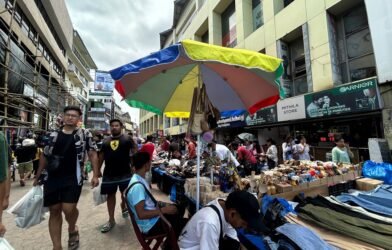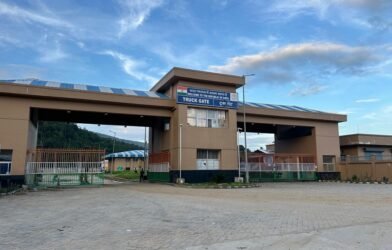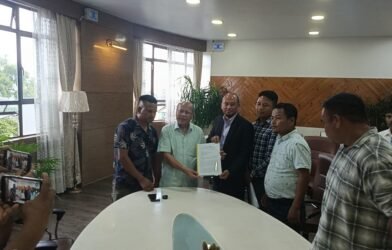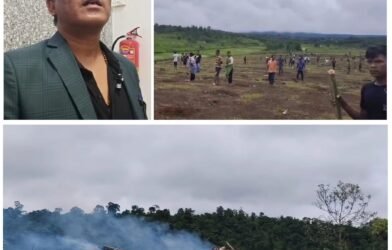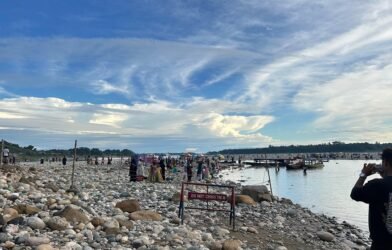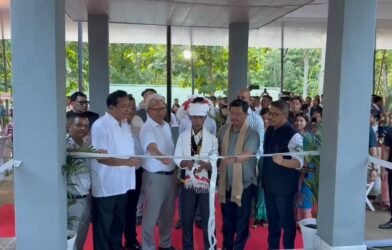Subtotal $0.00
Shillong, July 17: The 183rd death anniversary of Khasi warrior who revolted against the British, U Tirot Sing Syiem was commemorated on Tuesday.
Paying tribute to U Tirot at his memorial status organized by the Khasi Students Union (KSU) at Madan ïewrynghep here, Urban Affairs Minister, Hamletson Dohling said that the government would find suitable location to build the statues of the three legendary warriors of the state – U Tirot Sing Syiem, U Kiang Nangbah and Pa Togan N. Sangma.
“It will be my duty to ensure that a suitable location is found so that the statues of the warriors of the three tribes – Khasi, Jaiñtia and Garo can be erected,†Dohling said.
Dohling said that it has always been his desire to give due recognition and respect to these warriors.
“I will take up this matter with the state government to ensure that necessary action is taken,†the former KSU leadere-turned politician assured the small gathering.
Dohling also lauded KSU for constructing the statue of U Tirot Sing Syiem and U Kiang Nangbah in the city and admitted that declaring only a state holiday on the part of the state government was not enough to honour the warriors.
Speaking about U Tirot Sing Syiem, the first Khasi chief who rebelled against the British on April 4, 1929, Dohling said, “U Tirot Sing was a leader with responsibility towards protecting his own people.â€
He also urged the people to follow such footsteps and take upon themselves the responsibility to protect women and children, who often fall victims of rape and other crimes, and to fight against drug menace which is affecting the youth of the state.
North East Students Organisation (NESO) Chairman, Samuel B. Jyrwa, and KSU President, Lambokstarwell Marngar also spoke on the occasion.
The commemoration was also observed at the native place of U Tirot Sing at Nongkhlaw, by the Hima Nongkhlaw as well as at Mairang.
Minister for Health and Arts and Culture, A.L. Hek participated in the commemoration at Mot Tirot Ground, Mairang in the presence of Khasi Hills Autonomous District Council (KHADC) Chief Executive Member, H.S. Shylla and Chief of Hima Nongkhlaw.
Extolling the virtues of the great Khasi chieftain, Hek said that u Tirot Sing Syiem was a leader with a vision, who thought about the welfare of his people and his land.
“As a chieftain he did not make hasty decision but sought the counsel of the durbar for deciding matters of grave importance,†he said.
The Minister also spoke about the importance of maintaining the unique traditions and customs of the Khasi society and said that the role of maternal uncle who holds an important position in the Khasi Society needs to be strengthened again as well as the role of the father who looks after the family.
Other organizations like the Hynñiewtrep Youth Council (HYC) also commemorated the day and renewed their commitment to fight against forces that attempt to weaken the identity of the indigenous tribes.
U Tirot Sing Syiem — the popular Syiem (chief) of Hima Nongkhlaw or the Nongkhlaw state of the pre-Independence era was one of the chiefs of the Khasi people.
When the British gained control over the Brahmaputra valley after concluding the Treaty of Yandabo in 1826. They wanted to construct a road to connect Guwahati with Sylhet to save weeks of travel between their possessions in Sylhet and the newly acquired possessions in Lower Assam intervened the Khasi Hills. David Scott, the agent to the British Governor-General for the Northern Territory, found out that U Tirot Sing was interested in regaining possessions in the duars (passes into Assam) in return for the permission for the road project.
After a two-day session of the Durbar (assembly) it was agreed to the proposal of the British and work on the road project started. When Balaram Singh, Raja of Ranee, disputed U Tirot Sing’s claims to the passes, he went with a party of armed men in December 1828 to establish his claim.
He was confident that the British would support him, but he was instead confronted by a party of sepoys who blocked his passage. When news came that the British were reinforcing forces in Assam, U Tirot Sing convened a Durbar again, and passed orders for the British to evacuate Nongkhlaw.
The British paid no heed, and the Khasis attacked the British garrison in Nongkhlaw on 4 April 1829.
U Tirot Sing’s men killed two British officers, and thus unleashed the fury of British retaliation. Military operations against U Tirot Sing and other Khasi chiefs were started immediately.
In the Anglo-Khasi War, the Khasis lacked firearms and had only swords, shields, bows and arrows. They were untrained in the British type of warfare and soon found that it was impossible to engage in open battle against an enemy who could kill from a distance.
Instead, they resorted to guerrilla activity, which dragged on for about four years. U Tirot Sing fought with only with native weapons such as a sword and shield, he was shot at by the British and had to hide in a cave.
He was eventually captured by the British in January 1833 and deported to Dacca (now Dhaka) the location of his hiding place was given by a chief of his who was bribed with gold coins by the British.
U Tirot Sing died on July 17, 1835 and his death anniversary is commemorated every year as a state holiday in Meghalaya.







